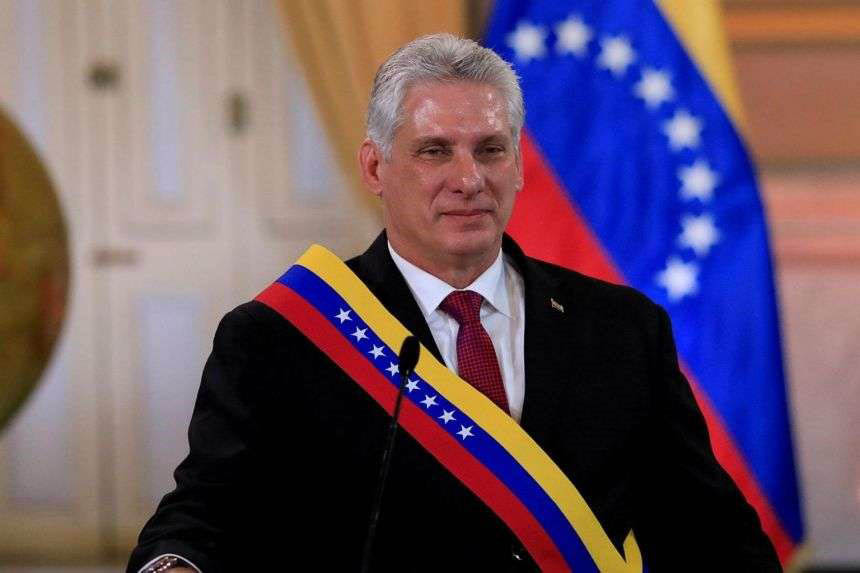HAVANA, (Reuters) – Cuban lawmakers yesterday easily re-elected Miguel Diaz-Canel as president for a second term as the country faces one of the biggest social and economic crisis since Fidel Castro’s 1959 revolution.
Diaz-Canel, leader of the Communist Party – the country’s only recognized political movement – won a landslide vote of 97.66% of the National Assembly, all of whose 470 members are aligned with the party or sympathetic to it.
The newly elected president, in a televised speech, thanked cheering lawmakers for their support.
“We must assume this gigantic challenge without slowing down,” said Diaz-Canel, 62, reaffirming his administration’s commitment to Castro’s revolution.
Among the crowd was Raul Castro, 91, the late Fidel’s brother, who vigorously shook Diaz-Canel’s hand upon announcement of the results, showing the old guard’s continued support.
The assembly also re-elected Salvador Valdes as Cuba’s vice-president and Manuel Marrero as prime minister.
The rejoicing is likely to be short-lived as Diaz-Canel’s incoming administration faces daunting challenges during his next five-year term.
Inflation has soared and tourism has floundered since the coronavirus pandemic, and long lines for fuel, medicine and food have raised tensions, fanning unrest that led to the largest protests in decades in July 2021.
Hundreds of thousands have migrated off the Caribbean island in the past year, fleeing economic ruin.
“All these problems remain unsolved so (Diaz-Canel) has a very difficult road ahead,” said William LeoGrande, a Cuba expert with American University. “There’s a certain lack of confidence in the government’s ability to solve these problems that (he) has to try to overcome to restore people’s faith.”
Diaz-Canel, who hails from the central Cuban city of Santa Clara, is an electrical engineer by training and a career politician who quickly gained respect as a party stalwart from a young age.
The silver-haired Diaz-Canel, born just after Castro’s revolution took hold, has expressed regret for being unable to revive the island’s ailing economy.
But yesterday, he also sounded a familiar note, blaming the United States and its Cold War-era embargo for Cuba’s woes, encouraging “continuity” and “creative resistance” to keep the revolution afloat even as tensions flare among its populace.
“This forces us to work harder and better, to respond to our people. I’m sure we’ll get good results,” Diaz-Canel said.
His administration will be quickly put to the test as the government seeks to placate the public amid growing shortages and wades into thorny issues, including the regulation of the press and the right to protest.
Candidates for president and legislative leaders were proposed by lawmakers prior to Wednesday’s session, then vetted by a National Candidacy Commission before a vote of the full legislature.






